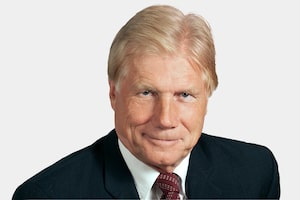In the U.S. election of 2008, the proportion of youth who voted in the state of Washington was 10 per cent. In the election of 2012, with the question of marijuana legalization on the ballot, it was 22 per cent.
In other states where the question was put, Colorado and Oregon, the increases in youth turnout were notable as well. With the under-30 crowd voting strongly in favour of legalization, two of the states, Colorado and Washington, passed the measure. Few would be surprised if other states followed before long.
In advocating the legalization of marijuana, Liberal Leader Justin Trudeau, who wants to appeal to a new generation of voters, was no doubt aware of these numbers.
He was likely aware of the long-term trend as well. Some see an inevitability on liberalization of drug use comparable to what we have seen on the liberalization of laws affecting gays. In April, a Pew Research Center poll found that a majority of Americans support legalizing pot for the first time since the centre began polling in 1969. That was back before Richard Nixon was declared his war on drugs.
As in the United States, Canadian public opinion has moved into majority-in-favour territory. Yet despite the changing times, the Conservatives, more than 40 years after Mr. Nixon, have been waging their own war on drugs, mainly soft drugs. Since they came to power in 2006, arrests for marijuana possession have increased 41 per cent. Hundreds of thousands of people have been taken in on marijuana-related charges. The weed is treated as being truly evil by our governing authorities. It's time-warp politics, stuff that appeals to the Conservatives' hard-core base.
The issue, obviously not as important as gay rights, has not garnered much public notice. But with the young Mr. Trudeau taking it up, it will now. He is taking a gamble here, but it was the obvious thing for him to do.
In terms of new-age appeal, he didn't have much in the policy window to show he was all that different from conventional political types. The move on drug liberalization will help. It puts him brightly on the progressive stage, it contrasts him with the fogey class of leaders and it will increase voter turnout among youth.
During the Nixon era, it was Justin's father, Pierre, who appointed the Le Dain Commission on the non-medical use of drugs. After an exhaustive study, the commission recommended the repeal of prohibition against simple possession of cannabis. The thrust of the report was that harm from criminalization outweighed harm from legalization. In 2002, a Senate study recommended legalization, plus amnesty for past convictions.
Elizabeth May's Green Party has been out front on the issue, in favour of legalization. The New Democrats have been in the halfway house, supporting decriminalization but not legalization. I suspect they are not pleased at Mr. Trudeau's gambit. He has poached from their left-wing flank and made the issue his own.
Megan Leslie, one of the NDP's deputy leaders, criticized the move as political pandering. She says there is no evidence that Mr. Trudeau has thought through the thicket of issues raised by legalization. We shall see. The issue is one the Conservatives will surely try to use to torment Mr. Trudeau; Republicans in Washington once went after his father as a pot-smoking leftist.
One thing the legalizers can point to is that if you look at countries that have gone the liberalization route – Germany, Portugal, Belgium, Italy, the Netherlands – there isn't much to support scare scenarios raised by opponents. For example, among the very young, these countries have rates of cannabis use that are lower than present-day Canada.
These types of questions aside, the important thing for Mr. Trudeau is that the issue helps situate him politically where he wants to be. If he can define the terms of debate in the next election as vanguard versus rearguard, he wins.
 Lawrence Martin
Lawrence Martin